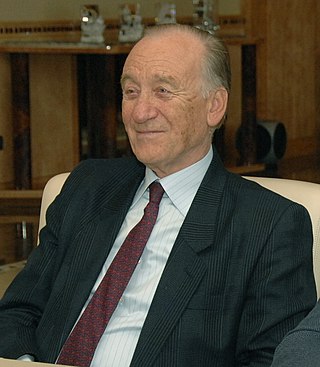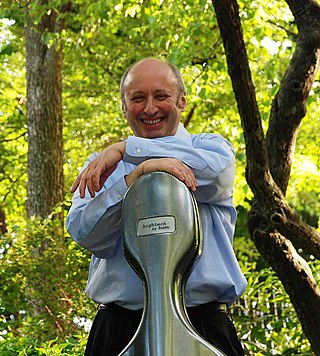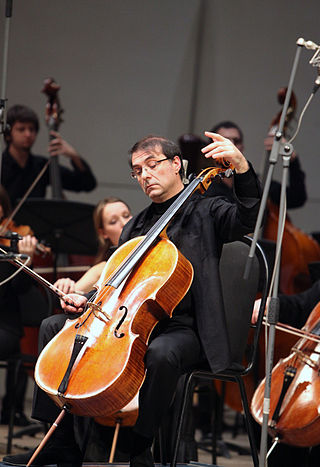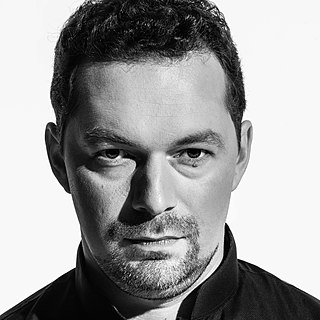Related Research Articles

Mikhail Vasilievich Pletnev is a Russian pianist, conductor and composer.

Rodion Konstantinovich Shchedrin is a Soviet and Russian composer and pianist, winner of USSR State Prize (1972), the Lenin Prize (1984), and the State Prize of the Russian Federation (1992), and is a former member of the Inter-regional Deputies Group (1989–1991). He is also a citizen of Lithuania and Spain.
Alexander Vassilievich Gauk was a Soviet conductor and composer.
Antonín Dvořák's Serenade for Strings in E major, Op. 22 (B. 52), is one of the composer's most popular orchestral works. It was composed in just two weeks in May 1875.
Levon Ambartsumian is an Armenian classical violinist and conductor. Levon Ambartsumian currently lives and works in Athens, Georgia, United States.

Constantine Garrievich Orbelian, Jr. is an American conductor and pianist of Armenian and Russian descent. He is named after his paternal uncle Konstantin Orbelyan, a major Armenian composer. Constantine Orbelian is currently music director and Principal Conductor of the New York City Opera.

Misha Quint is a Russian-born classical cellist and music director.
Marco Boni is an Italian conductor.

Michael Lazarevich "Misha" Geller was a Russian viola player and composer.
Beth Denisch is an American composer. She received a Bachelor of Music degree from North Texas State University in Denton, Texas, and an MM and a DMA from Boston University, where her teachers in composition were John Harbison and Bernard Rands. She has taught at UMass Dartmouth and Northeastern University. She is currently Professor of Composition at the Berklee College of Music in Boston.

Rudolf Borisovich Barshai was a Soviet and Russian conductor and violist.

Alexander Israilevich Rudin is a Russian classical cellist and conductor.
The Concerto Grosso No. 1 was the first of six concerti grossi by Soviet composer Alfred Schnittke. It was written in 1976–1977 at the request of Gidon Kremer and Tatiana Grindenko who were also the violin soloists at its premiere on 21 March 1977 in Leningrad together with Yuri Smirnov on keyboard instruments and the Leningrad Chamber Orchestra under Eri Klas. It is one of the best-known of Schnittke's polystylistic compositions and marked his break-through in the West.

Where are You, my Brothers? is a 2003 album of Russian-language songs from World War II recorded by baritone Dmitry Hvorostovsky and conductor Constantine Orbelian for Delos Productions. The album was released in Russia as Songs of the War Years. It was based on a concert at the Kremlin Palace in Moscow. A video of the concert and 13 of the songs was released on the American VAI label. The repertoire of the concert is the very core of the Russian war song genre and the sound and video releases were accompanied by booklet essays and sung texts and translations.
Andrei Danilov is a Russian conductor.
Gennady Dmitryak is a Russian conductor and Meritorious Artist.

Nikolay Khondzinsky is a Russian conductor, founder and artistic director of the Russian Conservatoria Chamber Capella, Artistic director and Chief conductor of the Pskov Region Symphony orchestra, Artistic director of the Council Hall, Guest conductor of the Mariinsky Theatre

Dmitri Pavlovich Kogan was a Russian violinist and an Honoured Artist of the Russian Federation.
Varvara Ivanova is a Russian virtuoso harpist and winner of major prizes in many international harp competitions.
Leonid Gavrilovich Grin is a Soviet-born American conductor.
References
- ↑ Tyranny, "Blue" Gene. "Misha Rachlevsky". Allmusic.com . Retrieved 6 April 2014.